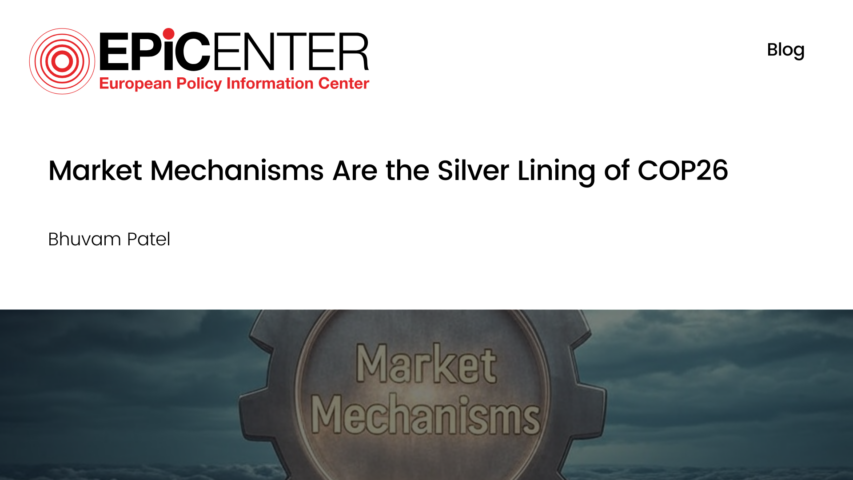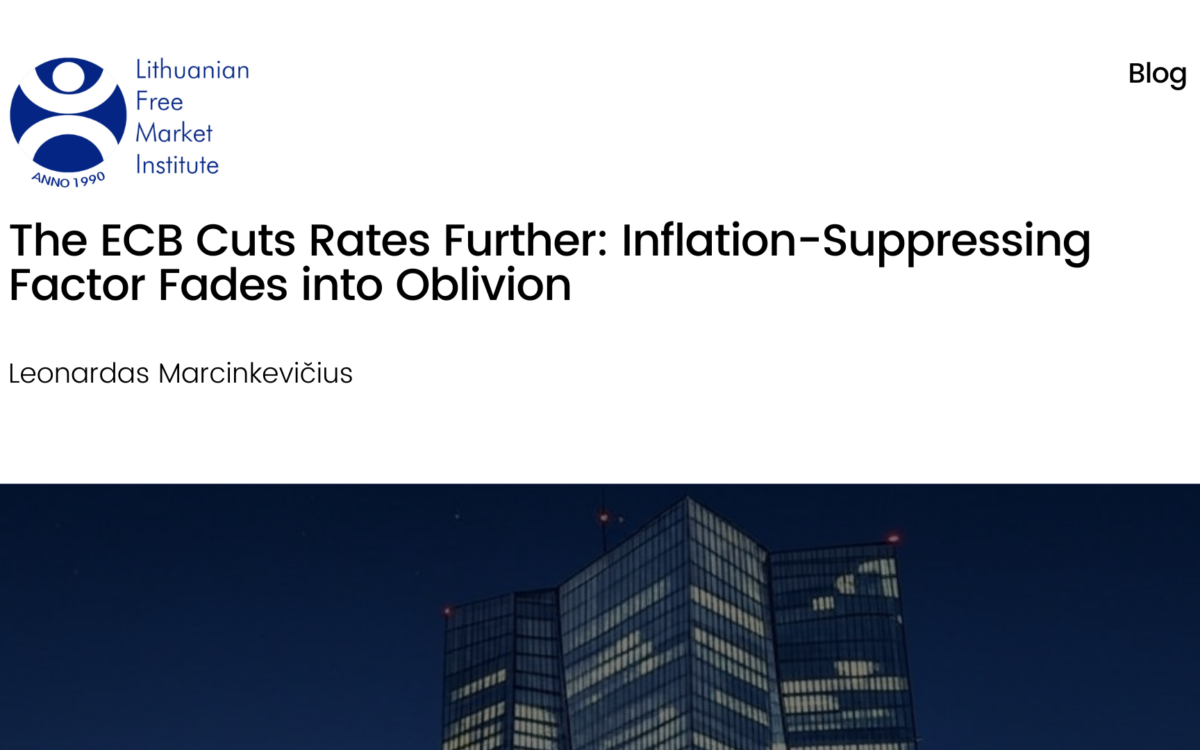Market Mechanisms Are the Silver Lining of COP26

Market Mechanisms Are the Silver Lining of COP26
Bhuvam Patel // 19 November 2021
While COP26 seems to have had lukewarm effects on the global approach towards more sustainable policies, a key takeaway is the promotion of market environmentalism. It has been common in the past to set extreme regulations for energy companies which stifled growth and arguably also stifled the energy transition. The market-based approach towards climate change policy is the clear path to achieve an eco-friendlier economic system. A market-based approach needs more recognition since it is neither too ambitious (and vague) nor is it as short-sighted as the current political approaches observed at COP26.
Highlighting the imminent energy transition
It has been observed in the past that most of the “matured energy systems” have all resulted in some sort of market failure. Monopolies have formed within the oil and gas sector whereas coal continues to be subsidised in various countries around the world. The current top-down approach to energy policy has seen it become more restrictive and favourable to existing (and outdated) sources. The exponentiality of solar, wind, and nuclear energy has been hampered highly protected energy systems that exist. Innovation needs to be at the centre of our transition towards a cleaner earth and cleaner economy. In the past, a market approach would have led to faster responses to the climate change issue through open investments in the new technologies that are currently still at a maturing stage.
Markets vs Governments
COP26 highlighted that the government-knows-all approach is riddled with bureaucracy and misallocation of resources. Governments have been pressured to re-align existing industrial pathways and have been given the freedom to increase government spending to meet the demands of COP. While world governments are relative economically, historically, and culturally they still do not possess the expertise to tackle an issue like climate change. The approach should be driven by experts i.e. scientists, economists, and sectoral policy experts. Keeping the market enables these ideas to come into fruition at a faster and raise investments at a quicker rate. Comparing the current crisis with the space race in the 1960’s we see that the market can easily innovate at a faster rate if opened up (with SpaceX being able to launch missions in less than 20 years). Similarly, energy transitions and conservation movements etc. can be expedited through free-market mechanisms.
Threat to the market is a threat to the climate
Growing protectionist regimes around the world are another key issue that market environmentalism could tackle. The developing world seeks to industrialise following the same trajectories as the developed (which were more carbon intensive). However, opening the market can also help with diffusion of new technologies, new ideas, and investment towards cleaner transitions. Climate change is imminent, however efforts to combat or adapt to it must be global and free-markets are one of the best vehicles to bring about more accelerated change.
Market decisions on technology
Currently, a big difference between COP26 renewables policy has been governments joining a universal bandwagon to roll-out technologies. Solar and EVs, while being matured technologies are not always the best solutions to be rolled out universally as they are intermittent and reliant on efficient electricity grids. Examples of this are the approach towards the universality of EVs which may not be as efficient in countries like India that lack public infrastructure and demand for an efficient transition. Another key market solution would be identifying niches and capitalising on successes in fields like nuclear fusion. Current regulatory frameworks have also prevented start-ups from becoming big players organically EV start-ups are often acquired and share prices are inflated without proper innovation or products in mind. A free-market approach to environmentally friendly start-ups can prevent monopolisation of industries as well.
EPICENTER publications and contributions from our member think tanks are designed to promote the discussion of economic issues and the role of markets in solving economic and social problems. As with all EPICENTER publications, the views expressed here are those of the author and not EPICENTER or its member think tanks (which have no corporate view).



